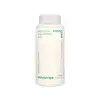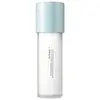What's inside
What's inside
 Key Ingredients
Key Ingredients

 Benefits
Benefits

 Concerns
Concerns

No concerns
 Ingredients Side-by-side
Ingredients Side-by-side

Water
Skin ConditioningPropanediol
SolventGlycerin
HumectantBetaine
HumectantPolyglycerin-3
Humectant1,2-Hexanediol
Skin ConditioningLactobacillus Ferment Lysate
Skin ConditioningGluconolactone
Skin ConditioningSodium Metaphosphate
BufferingButylene Glycol
HumectantEthylhexylglycerin
Skin ConditioningXanthan Gum
EmulsifyingTromethamine
BufferingCamellia Sinensis Leaf Extract
AntimicrobialPanthenol
Skin ConditioningBeta-Glucan
Skin ConditioningSodium Hyaluronate
HumectantHydrolyzed Hyaluronic Acid
HumectantSodium Hyaluronate Crosspolymer
HumectantHyaluronic Acid
HumectantTocopherol
AntioxidantSodium Acetylated Hyaluronate
HumectantWater, Propanediol, Glycerin, Betaine, Polyglycerin-3, 1,2-Hexanediol, Lactobacillus Ferment Lysate, Gluconolactone, Sodium Metaphosphate, Butylene Glycol, Ethylhexylglycerin, Xanthan Gum, Tromethamine, Camellia Sinensis Leaf Extract, Panthenol, Beta-Glucan, Sodium Hyaluronate, Hydrolyzed Hyaluronic Acid, Sodium Hyaluronate Crosspolymer, Hyaluronic Acid, Tocopherol, Sodium Acetylated Hyaluronate
Water
Skin ConditioningButylene Glycol
HumectantDipropylene Glycol
Humectant1,2-Hexanediol
Skin ConditioningBetaine
HumectantTrehalose
HumectantDiethoxyethyl Succinate
SolventPPG-13-Decyltetradeceth-24
EmulsifyingXanthan Gum
EmulsifyingEthylhexylglycerin
Skin ConditioningParfum
MaskingMentha Arvensis Leaf Extract
MaskingDisodium EDTA
Hydrolyzed Hyaluronic Acid
HumectantPropanediol
SolventGluconolactone
Skin ConditioningAureobasidium Pullulans Ferment
Skin ConditioningLactobacillus/Soybean Ferment Extract
Skin ConditioningYeast Ferment Extract
Skin ConditioningTocopherol
AntioxidantUndaria Pinnatifida Extract
Skin ConditioningWater, Butylene Glycol, Dipropylene Glycol, 1,2-Hexanediol, Betaine, Trehalose, Diethoxyethyl Succinate, PPG-13-Decyltetradeceth-24, Xanthan Gum, Ethylhexylglycerin, Parfum, Mentha Arvensis Leaf Extract, Disodium EDTA, Hydrolyzed Hyaluronic Acid, Propanediol, Gluconolactone, Aureobasidium Pullulans Ferment, Lactobacillus/Soybean Ferment Extract, Yeast Ferment Extract, Tocopherol, Undaria Pinnatifida Extract
 Reviews
Reviews

Ingredients Explained
These ingredients are found in both products.
Ingredients higher up in an ingredient list are typically present in a larger amount.
1,2-Hexanediol is a synthetic liquid and another multi-functional powerhouse.
It is a:
- Humectant, drawing moisture into the skin
- Emollient, helping to soften skin
- Solvent, dispersing and stabilizing formulas
- Preservative booster, enhancing the antimicrobial activity of other preservatives
Betaine is a common humectant (a substance that promotes retention of moisture). It's known to be gentle on the skin and can help balance hydration.
This ingredient is best for improving hydration and soothing irritated skin. Studies also show it helps even out skin tone.
Fun fact: Betaine is naturally created in the skin and body. The kind found within cosmetic products can be either plant-derived or synthetic.
Another name for betaine is trimethylglycine.
Learn more about BetaineButylene Glycol (or BG) is used within cosmetic products for a few different reasons:
Overall, Butylene Glycol is a safe and well-rounded ingredient that works well with other ingredients.
Though this ingredient works well with most skin types, some people with sensitive skin may experience a reaction such as allergic rashes, closed comedones, or itchiness.
Learn more about Butylene GlycolEthylhexylglycerin (we can't pronounce this either) is commonly used as a preservative and skin softener. It is derived from glyceryl.
You might see Ethylhexylglycerin often paired with other preservatives such as phenoxyethanol. Ethylhexylglycerin has been found to increase the effectiveness of these other preservatives.
Gluconolactone is a PHA. PHAs are a great gentle alternative to traditional AHAs.
When applied, Gluconolactone has the same affect on skin as AHAs such as lactic acid. It helps dissolve the dead skin cells in the top layer of your skin. This improves texture and brightens the skin.
PHAs are more gentle than AHAs due to their larger structure. They do not penetrate as deeply as AHAs and take a longer time to dissolve dead cells. Studies show PHAs do not cause as much irritation.
Gluconolactone has some interesting properties:
In a 2004 study, Gluconolactone was found to prevent UV damage in mouse skin cells and has not been found to increase sun sensitivity. However, we still recommend wearing SPF daily.
This ingredient is is an created by reacting gluconic acid with an alcohol.
Learn more about GluconolactoneHydrolyzed Hyaluronic Acid is a form of hyaluronic acid. It is created by the hydrolysis of hyaluronic acid with a high molecular weight. Once created, Hydrolyzed Hyaluronic Acid has a low molecular weight.
Low molecular weight HA has been shown to hydrate and increase elasticity of the skin. Increasing elasticity is also associated with reduction of wrinkle depth.
One study found topical low molecular weight hyaluronic acid may be considered for the treatment of rosacea in the adult population. However, we always recommend speaking with a professional about your skin concerns.
Hyaluronic acids are a humectant. This means they draw moisture from the air. Hyaluronic acids help moisturize, soothe, and protect the skin.
Read more about other common forms of hyaluronic acid:
Learn more about Hydrolyzed Hyaluronic AcidPropanediol is an all-star ingredient. It softens, hydrates, and smooths the skin.
It’s often used to:
Propanediol is not likely to cause sensitivity and considered safe to use. It is derived from corn or petroleum with a clear color and no scent.
Learn more about PropanediolTocopherol (also known as Vitamin E) is a common antioxidant used to help protect the skin from free-radicals and strengthen the skin barrier. It's also fat soluble - this means our skin is great at absorbing it.
Vitamin E also helps keep your natural skin lipids healthy. Your lipid skin barrier naturally consists of lipids, ceramides, and fatty acids. Vitamin E offers extra protection for your skin’s lipid barrier, keeping your skin healthy and nourished.
Another benefit is a bit of UV protection. Vitamin E helps reduce the damage caused by UVB rays. (It should not replace your sunscreen). Combining it with Vitamin C can decrease sunburned cells and hyperpigmentation after UV exposure.
You might have noticed Vitamin E + C often paired together. This is because it is great at stabilizing Vitamin C. Using the two together helps increase the effectiveness of both ingredients.
There are often claims that Vitamin E can reduce/prevent scarring, but these claims haven't been confirmed by scientific research.
Learn more about TocopherolWater. It's the most common cosmetic ingredient of all. You'll usually see it at the top of ingredient lists, meaning that it makes up the largest part of the product.
So why is it so popular? Water most often acts as a solvent - this means that it helps dissolve other ingredients into the formulation.
You'll also recognize water as that liquid we all need to stay alive. If you see this, drink a glass of water. Stay hydrated!
Learn more about WaterXanthan gum is used as a stabilizer and thickener within cosmetic products. It helps give products a sticky, thick feeling - preventing them from being too runny.
On the technical side of things, xanthan gum is a polysaccharide - a combination consisting of multiple sugar molecules bonded together.
Xanthan gum is a pretty common and great ingredient. It is a natural, non-toxic, non-irritating ingredient that is also commonly used in food products.
Learn more about Xanthan Gum